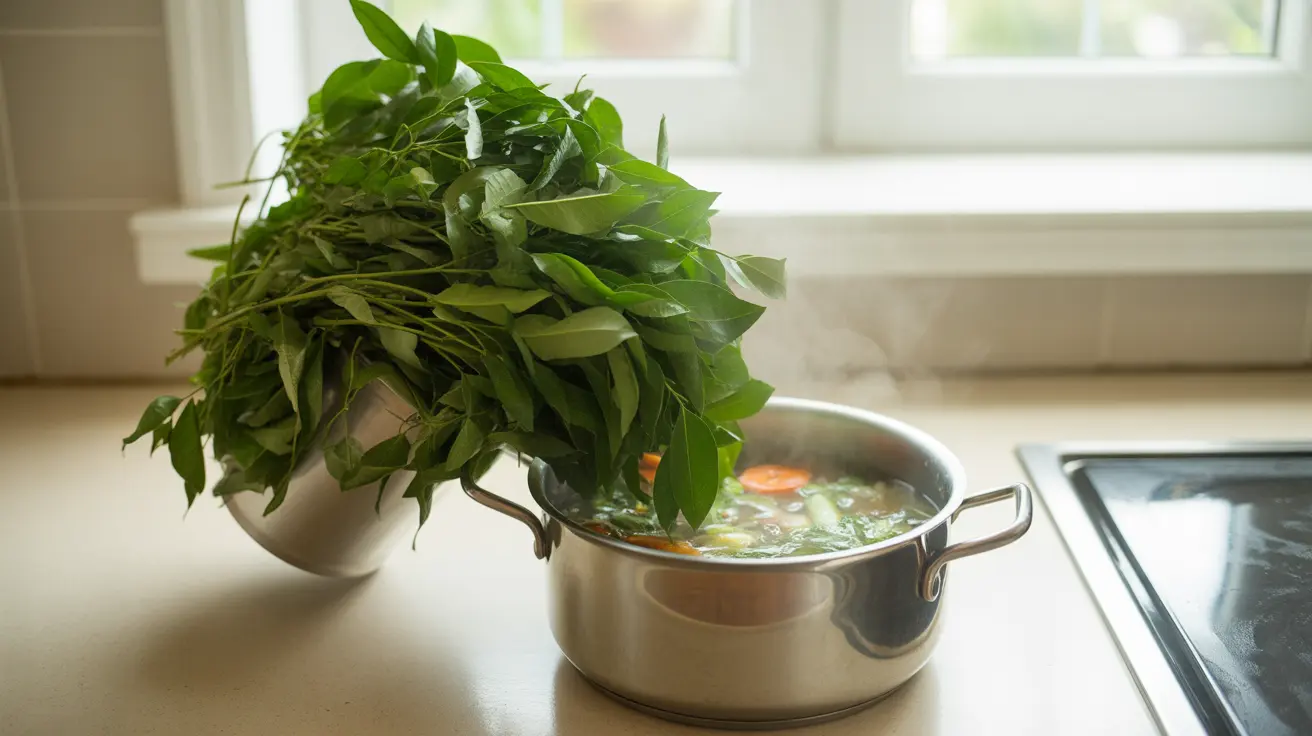Curry leaves, a staple in Indian cuisine and traditional medicine, are emerging as a powerful natural remedy with numerous health-promoting properties. These aromatic leaves, scientifically known as Murraya koenigii, have been used for centuries not only to enhance the flavor of dishes but also to support overall wellness through their rich nutritional profile and therapeutic compounds.
From managing blood sugar levels to promoting hair health and supporting digestion, curry leaves offer a wide range of benefits that make them a valuable addition to your daily diet and wellness routine. Let's explore the science-backed advantages and practical ways to incorporate these versatile leaves into your lifestyle.
Essential Nutrients in Curry Leaves
Curry leaves are packed with vital nutrients that contribute to their health-promoting properties. They contain significant amounts of:
- Vitamins A, B, C, and E
- Iron and calcium
- Antioxidants and flavonoids
- Essential oils
- Fiber
- Carbazole alkaloids
Key Health Benefits of Curry Leaves
Blood Sugar Management
Research suggests that curry leaves can play a significant role in blood sugar control. The leaves contain compounds that may help regulate glucose levels by improving insulin sensitivity and reducing glucose absorption in the bloodstream. This makes them particularly beneficial for individuals managing diabetes or those at risk of developing the condition.
Digestive Health Support
Curry leaves have traditionally been used to promote healthy digestion and relieve gastrointestinal discomfort. Their natural compounds can:
- Stimulate digestive enzyme production
- Reduce inflammation in the gut
- Help prevent diarrhea
- Soothe mild digestive upset
Hair and Skin Benefits
The high nutrient content of curry leaves makes them excellent for maintaining healthy hair and skin. Their antioxidant properties and essential nutrients work together to:
- Strengthen hair follicles
- Prevent premature graying
- Promote natural hair growth
- Protect skin from oxidative stress
- Support collagen production
Practical Ways to Use Curry Leaves
Culinary Applications
Incorporate curry leaves into your daily diet through these methods:
- Add fresh leaves to soups, stews, and curries
- Infuse oils with dried curry leaves
- Create curry leaf powder for seasoning
- Brew curry leaf tea
Traditional Remedies
For therapeutic benefits, try these traditional applications:
- Curry leaf hair oil for scalp health
- Curry leaf paste for skin applications
- Dried leaf powder supplements
- Fresh leaf juice for digestive health
Safety and Precautions
While curry leaves are generally safe for most people, it's important to consider certain precautions:
- Start with small amounts to test tolerance
- Consult healthcare providers if pregnant or nursing
- Be aware of potential interactions with medications
- Ensure leaves are properly cleaned before consumption
Frequently Asked Questions
What are the main health benefits of consuming curry leaves regularly?
Regular consumption of curry leaves can help regulate blood sugar levels, improve digestion, boost heart health, support hair growth, and provide antioxidant protection. Their rich nutrient content contributes to overall wellness and immune system function.
Can curry leaves help with blood sugar control, and are they safe for people with diabetes?
Yes, curry leaves can help with blood sugar control through their ability to improve insulin sensitivity and reduce glucose absorption. They are generally safe for people with diabetes, but it's important to monitor blood sugar levels and consult with healthcare providers when incorporating them into a diabetes management plan.
How do curry leaves promote hair growth and prevent premature graying?
Curry leaves contain essential nutrients like vitamins B and E, proteins, and antioxidants that nourish hair follicles and maintain melanin production. Regular use, either through consumption or topical application, can help strengthen hair roots and prevent premature graying.
What are some easy ways to use curry leaves in daily cooking or home remedies for digestive health?
You can add fresh curry leaves to soups, stews, and curries, make curry leaf tea, or create a powder for seasoning. For digestive health, chewing fresh leaves or drinking curry leaf tea can help ease digestion and reduce symptoms of mild gastrointestinal discomfort.
Are there any side effects or groups of people who should avoid using curry leaves?
While curry leaves are generally safe, pregnant and nursing women should consult healthcare providers before use. Some people may experience mild allergic reactions. Those on blood sugar-lowering medications should monitor their levels closely when consuming curry leaves regularly.




